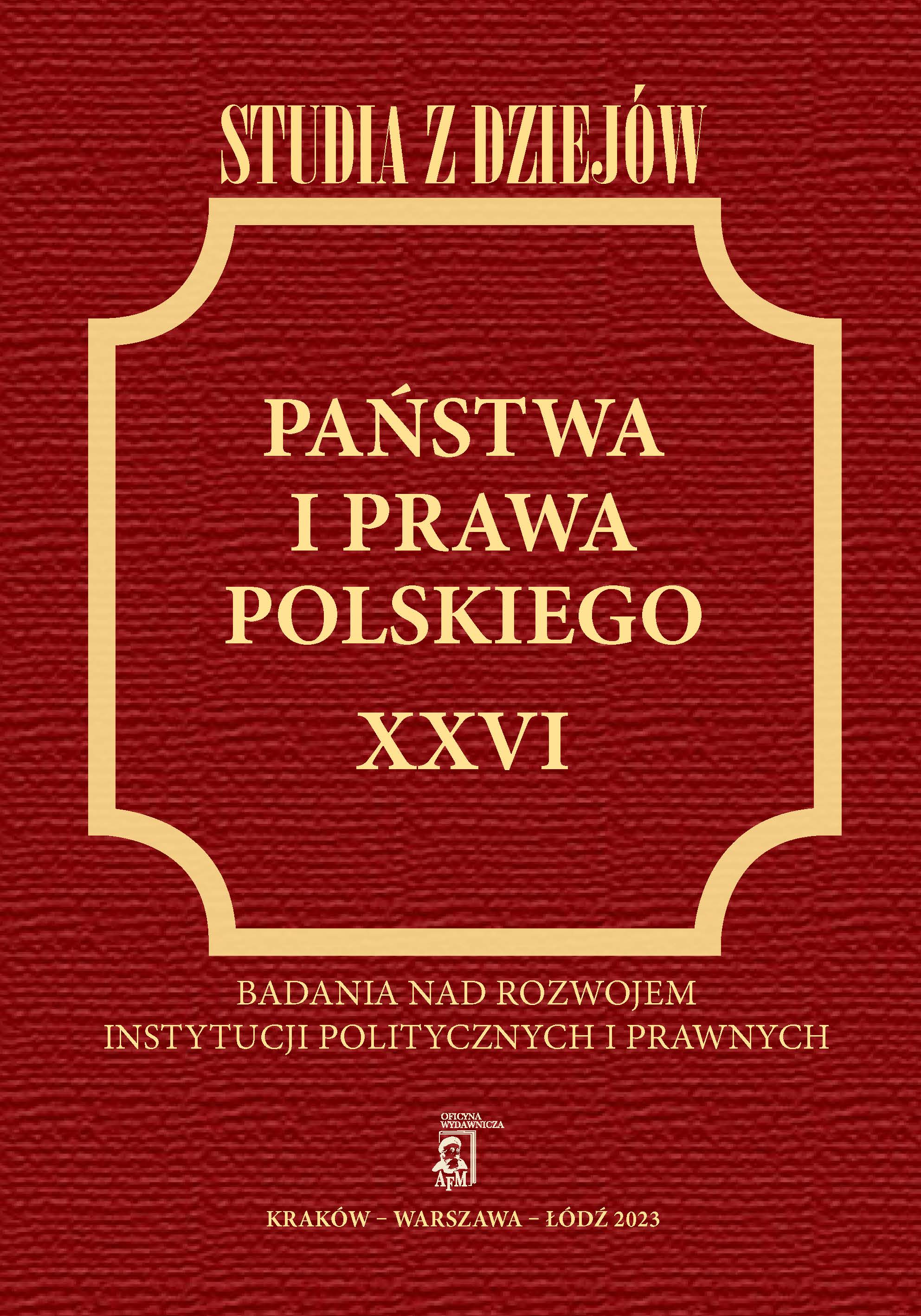Legitymacje szlachectwa na ziemiach polskich pod zaborami
Noble legitimization in Polish lands under partition
Author(s): Michał NowakSubject(s): History, Law, Constitution, Jurisprudence, Local History / Microhistory, Modern Age, Recent History (1900 till today)
Published by: Oficyna Wydawnicza AFM Uniwersytetu Andrzeja Frycza Modrzewskiego w Krakowie
Keywords: Polish nobility; partitions; nobility card; Galicia; Kingdom of Poland; Duchy of Warsaw; Heraldic Office of the Kingdom of Poland; Prussian partition;
Summary/Abstract: The article discusses the procedures for legitimizing nobility in Polish lands under the Austrian, Prussian, and Russian partitions. In the Polish-Lithuanian Commonwealth, the processes of legitimization were based on court “noble reputation trials,” where the primary evidence consisted of witness testimonies. After the partitions of Poland, these procedures were formalized, and heraldic offices were established in each partition. In the Prussian partition, noble legitimization was mainly economic in nature: it granted access to mortgages and exemption from long military service. However, the process was met with resistance by the nobility due to strong Germanization tendencies. In the Austrian partition, the nobility was divided into magnates and knights, and legitimization aimed to integrate them into the Austrian system. In the Russian partition, the procedures were the most chaotic and complicated, leading to numerous forgeries. In the Kingdom of Poland, the Heraldic Office operated, which from 1836 conducted proceedings confirming noble status. These processes were less restrictive than in the Russian partition, and the nobility could legitimize themselves until 1861, when the Heraldic Office of the Kingdom of Poland was abolished.
Journal: Studia z Dziejów Państwa i Prawa
- Issue Year: XXVI/2023
- Issue No: 1
- Page Range: 167-185
- Page Count: 20
- Language: Polish

